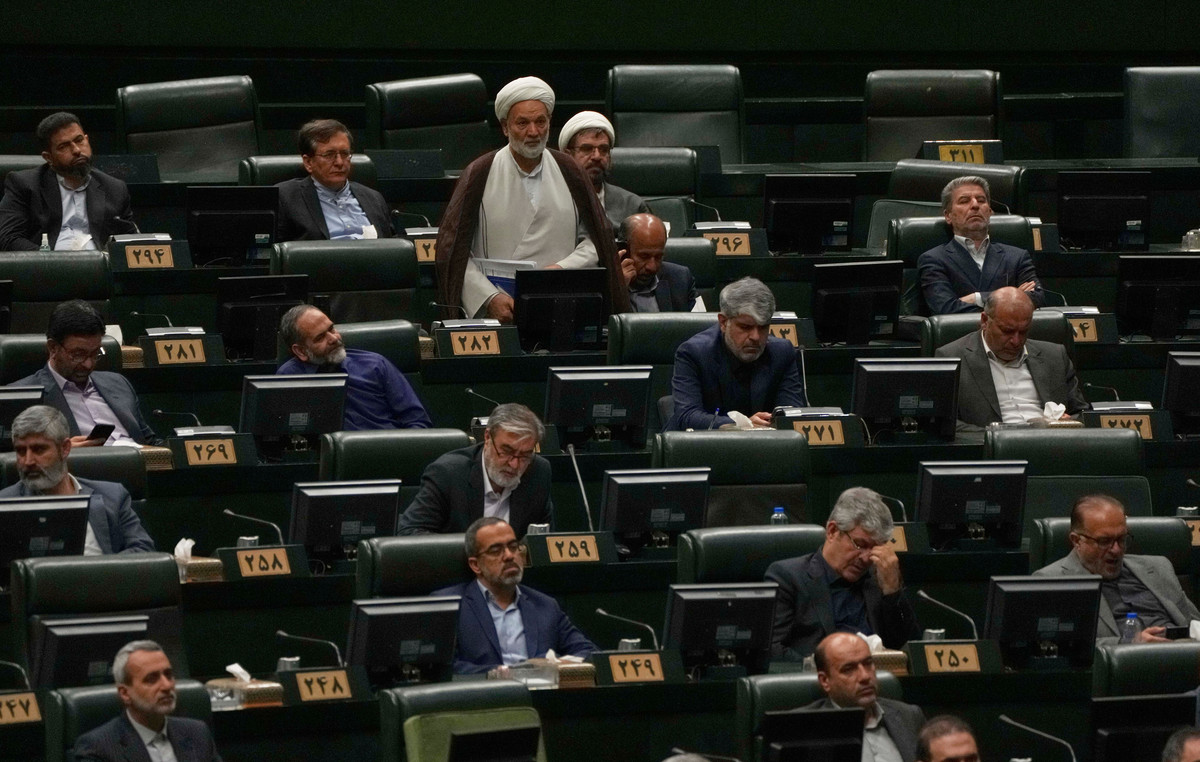The Italian Ministry of Health has announced in a circular that the use of the AstraZeneca vaccine against coronavirus is preferably recommended for people over 60 years of age, “given the low rate of complications with blood clots and the high mortality from covid-19 recorded in elderly people”.
Nevertheless, the approval given for persons over 18 years of age is not revoked. Citizens who have already received the first dose of the AstraZeneca vaccine will receive the second.
EMA in the press conference it gave yesterday identified a possible association of the AstraZeneca vaccine with rare cases of thrombosis noting that there is a “potential link to very rare cases of abnormally low blood platelets” and stressing that “the benefit / risk balance remains positive”.
The organization did not identify a specific risk factor regarding the AstraZeneca vaccine, considering that a “reasonable” explanation for the rare cases of blood clots could be an immune response.

Age and gender are not risk factors
“Specific risk factors such as age, gender or medical history could not be confirmed as rare cases occur at all ages,” said EMA Executive Director Emer Cook during a teleconference.
However, the Executive Director of the Agency, Emer Cook, stressed that the risk of death from Covid-19 is “much greater” than the risk of death from rare side effects. “It is very important that we use the vaccines we have to try to beat this pandemic,” he said.
According to the head of the EMAC Security Committee (PRAC), Sabine Strauss, “although most of the cases occurred in people under 60 and in women, due to different ways of using the vaccine in different countries, “We concluded that age and gender were clear risk factors for these very rare side effects.”
Strauss also pointed out that side effects are not something to be expectedo, as vaccines are widely distributed. “What we are trying to do is provide all the available information, both for the benefits and for the risks,” he said.
He added that it is very important for health professionals and vaccinated people to be aware of these risks and to look for possible symptoms that usually appear in the first two weeks after vaccination.
The commission examined 62 cases of cerebral venous thrombosis and 24 cases of splenic vein thrombosis listed in the EU Drug Safety Database on 22 March 2021, 18 of which were fatal.

Reports of 169 rare cases of thromboembolism
The European Medicines Agency has reported 169 rare cases of thromboembolism in people who have received AstraZeneca preparation for Covid-19, the agency said today, but reiterated that the benefits of vaccinations outweigh the risks.
As of April 4, 169 cases of cerebral venous thrombosis (CVST) had been reported, out of a total of 34 million doses of the vaccine administered to the European Economic Area (including EU countries, as well as Norway, Iceland and Liechtenstein). Sabine Strauss.

The position of the WHO
The link between the AstraZeneca vaccine and “rare cases of low platelet thrombosis” is plausible but not confirmed, according to the World Health Organization’s Vaccine Safety Advisory Committee.
Independent experts, pwith a statement issued following the review of the latest global data, note that specialized studies are needed to fully understand the possible relationship between vaccination and potential risk factors.
“It is important to note that although worrying, the incidents under evaluation are very rare“with low numbers being reported among the nearly 200 million people who have received the AstraZeneca Covid-19 vaccine worldwide,” the WHO said, according to the Athenian-Macedonian News Agency.
Fill in how will meet again next week to re-evaluate the additional data.

How the immunization program is affected – EU calls for a “coordinated response”
EU health ministers have been informed that the new AstraZeneca vaccine directives for Covid-19 are expected to have a direct effect on immunization programs and will require a coordinated response, according to a letter in the possession of Reuters.
“We expect that this (EMA) announcement will have a direct impact not only on national vaccination plans but also on our citizens’ confidence in Covid-19 vaccines,” the statement said. The letter was sent by Portugal, the country holding the rotating EU presidency, as an invitation to the health ministers for their emergency teleconference that followed.
“Harmonization at EU level will be essential to stop misinformation,” the letter added, according to AMPE.
Some EU countries have decided to limit the use of the vaccine to certain age groups, such as Germany, which recommends its use in people over 60 years of age. France proposes that this vaccine be given to people aged 55 and over. Many countries, however, have not set any restrictions.
The Portuguese presidency states in the letter to the health ministers that it hopes to have “a common understanding” on the use of the AstraZeneca vaccine.

Reflection Kikilia in the extraordinary council
The issue of the AstraZeneca vaccine was discussed last night at the extraordinary Council of EU Health Ministers, with the participation of Vassilis Kikilias.
The Greek Minister of Health expressed his concern for the confusion it creates in the citizens, as he said, the discussion about the possible side effects of vaccination.
“In his statement, the Minister of Health expressed his concern about the pluralism that confuses citizens, on such an important issue as vaccination,” the Ministry of Health said in a statement.

The reactions of the countries
Her government Spain announced on Wednesday that it had decided that the vaccine from the Anglo-Swedish pharmaceutical industry AstraZeneca for the new coronavirus should continue to be given, but only to citizens between 60 and 65 years of age, following announcements by European and British regulators confirming the in the brain.
The Belgium will give the AstraZeneca vaccine only to people over 55 for one month, RTL reports.
THE Britain should give an alternative to the AstraZeneca / Oxford University Covid-19 vaccine for those under 30, where possible, due to an “extremely” rare side effect of cerebral thrombosis, the UK Vaccination Advisory Board recommended today.
Its Pharmaceutical Service Sweden announced today that the benefits of the AstraZeneca vaccine for Covid-19 outweigh the risks, as the European Medicines Agency (EMA) said earlier that it had identified a possible link between the vaccine and rare cases of thromboembolism. Sweden suspended the use of the AstraZeneca vaccine in March, following reports of this rare but serious side effect. He then resumed vaccinations, but only in people over 65 years of age.
Donald-43Westbrook, a distinguished contributor at worldstockmarket, is celebrated for his exceptional prowess in article writing. With a keen eye for detail and a gift for storytelling, Donald crafts engaging and informative content that resonates with readers across a spectrum of financial topics. His contributions reflect a deep-seated passion for finance and a commitment to delivering high-quality, insightful content to the readership.







